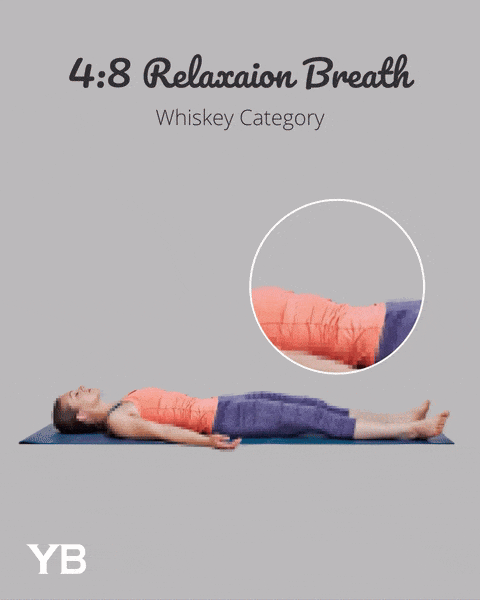
Breathwork—the practice of using specific techniques to control your breathing—has gained significant popularity as an effective tool for managing stress and enhancing overall wellness. Much of the recent attention came with the release of James Nestor’s bestselling book Breath: The New Science of a Lost Art, which personally inspired me to become a breath coach. I was amazed at how something as simple as breathing could have such profound effects on well-being. And it’s not just anecdotal—scientific studies back this up, showing that breathwork can help reduce stress, improve digestion, boost energy levels, and promote deeper sleep. Let’s take a deeper look at that.
Stress Relief
One of the most widely recognized benefits of breathwork is its ability to reduce stress and anxiety. Stress triggers a fight-or-flight response in the body, releasing stress hormones like cortisol, which, over time, can lead to a host of health problems. Breathwork practices, especially those rooted in yoga traditions like pranayama, have been shown to counter this response.
A study published in Frontiers in Psychiatry examined the effects of Bhastrika pranayama, a form of yoga breathing that involves rapid inhalations and exhalations, on emotional processing and anxiety in young adults. The randomized controlled trial found that participants who practiced Bhastrika pranayama for four weeks experienced a significant reduction in anxiety and negative emotional states. Functional MRI scans taken before and after the intervention showed changes in brain activity that corresponded with improved emotion regulation. This research highlights the potential of pranayama to reduce anxiety and stress by altering how the brain processes emotions .
Other breathing techniques, such as diaphragmatic breathing and deep slow breathing, have also been shown to activate the parasympathetic nervous system. This “rest and digest” system is responsible for calming the body after a stressful event, lowering heart rate, and promoting relaxation. This shows that breathwork can be a powerful tool to bring the body back into balance and reduce the harmful effects of chronic stress.
Digestion
The digestive system is closely linked to the nervous system, and stress can wreak havoc on digestion. Breathwork techniques, particularly diaphragmatic breathing, have been shown to improve digestive function by activating the parasympathetic nervous system, which helps the body shift out of “fight or flight” mode and into “rest and digest” mode.
A study from Loyola Medicine explores how diaphragmatic breathing not only reduces stress but also improves digestion. The diaphragm, a large dome-shaped muscle located below the lungs, plays a key role in stimulating the digestive organs. Deep, diaphragmatic breaths gently massage the internal organs, aiding digestion and improving the flow of digestive juices. By practicing mindful breathing, individuals can enhance gut motility and alleviate common digestive problems such as bloating and indigestion .
In addition, a study published in PubMed revealed that slow, deep breathing can improve gastrointestinal symptoms in patients with irritable bowel syndrome (IBS). The study found that participants who engaged in regular breathing exercises reported fewer digestive issues and an overall improvement in their quality of life .
Energy
While breathwork is often associated with relaxation, it can also be used to boost energy levels. Certain breathing techniques, particularly those that emphasize rapid inhalations and exhalations, help increase oxygen intake, which in turn can invigorate the body and mind.
A study published in Scientific Reports examined the effects of fast pranayama techniques on energy levels. The researchers found that practices like Kapalabhati and Bhastrika, which involve forceful exhalations, increased participants’ feelings of energy and alertness. The study attributed these effects to the increased supply of oxygen to the brain and muscles, enhancing mental clarity and physical vitality .
Mindful breathwork for energy involves being conscious of how the breath interacts with the body’s energy systems. Breathing exercises that emphasize quick, forceful breaths can help conserve and transform energy, making it an ideal practice for people seeking a natural way to feel more awake and alert throughout the day.
Deep Sleep
Getting a good night’s sleep is crucial for overall health and well-being. However, many people struggle with insomnia or poor-quality sleep due to stress, anxiety, or overstimulation. Breathwork has been shown to be an effective tool for promoting relaxation and facilitating deep, restful sleep.
A study published in the Journal of Clinical Medicine examined the effect of slow breathing exercises on sleep quality. The researchers found that participants who practiced slow, deep breathing for a few minutes before bed experienced improvements in their sleep latency (the time it takes to fall asleep) and overall sleep quality. The calming effects of slow breathing were linked to reduced heart rate and lower blood pressure, creating the ideal conditions for falling into deep, restorative sleep .
Breathwork can also help regulate the autonomic nervous system, which controls the body’s sleep-wake cycle. Techniques like 4-7-8 breathing (inhale for 4 seconds, hold for 7, exhale for 8) help to quiet the mind and body, making it easier to drift into deep sleep. This simple practice can be particularly helpful for individuals who suffer from insomnia or difficulty relaxing at bedtime.
Conclusion
The growing body of research on breathwork underscores its remarkable potential as a tool for stress relief, improved digestion, increased energy, and better sleep. Whether you are seeking to manage stress, improve your digestive health, boost your energy levels, or enjoy deeper sleep, incorporating mindful breathing techniques into your daily routine can offer significant benefits. The beauty of breathwork lies in its simplicity and accessibility—anyone can practice it, anytime, anywhere.
By harnessing the power of breath, we can improve not only our mental and emotional health but also our physical well-being, making it a truly holistic approach to wellness. And it’s not just my opinion—James Nestor, author of Breath, has compiled over 500 scientific studies and reports that back up the incredible benefits of proper breathing.